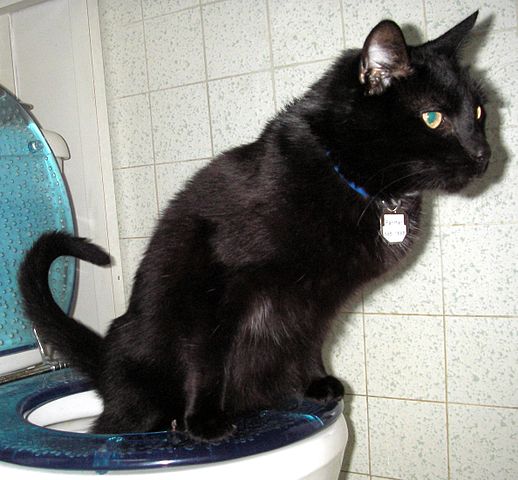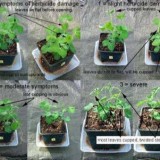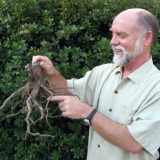
On the podcast this week Kelly and I discuss the horticulture and philosophy of the Ridley Scott/Matt Damon film The Martian, which is based on the novel by Andy Weir. It’s apparent that the character played by Matt Damon has read both John Jeavon’s How to Grow More Vegetables and Joe Jenkins’ Humanure Handbook. We have many questions about the film: Can you really grow potatoes on mars? Do you need to compost human waste before applying it to crops? Is NASA headquarters actually full of tasteful, mid-century modern furniture? We also discuss some deeper philosophical issues raised by the film. We reference Adam Bartos’ book of photographs, Kosmos: A Portrait of the Russian Space Age and Andrei Tarkovsky’s film Solaris, which you can view in its entirety for free (part 1 and part 2). Here’s the highway scene from Solaris that I mention. If you saw The Martian let us know what you thought of it!
If you want to leave a question for the Root Simple Podcast please call (213) 537-2591 or send an email to [email protected]. You can subscribe to our podcast in the iTunes store and on Stitcher. The theme music is by Dr. Frankenstein. A downloadable version of this podcast is here.





How to grow plants in alien environments is an interesting problem. An extreme case is the Dyson Tree, first proposed by renowned theoretical physicist Freeman Dyson.
Dyson suggests that, having selected a suitable comet in terms of orbit, composition and presence of water ice, it should be possible to remotely plant genetically modified trees that can grow in that environment. In the absence of gravity and in perpetual sunlight, the trees would grow prodigiously in all directions, covering the comet in an arboreal layer tens of miles thick. As the trees generate oxygen, it may be possible for human colonies to live under the tree canopy with minimal life support systems.
I’m not sure whether this is possible – Dyson is a brilliant man but is a physicist, not a botanist – or even desirable. I don’t think I would like to live there. However it is an interesting concept.
I’d not heard of that before–that’s really interesting. And it makes for a striking sci-fi vision. A sky full of Kudzu, perhaps?
We really enjoyed this film and thought it both entertaining and inspiring–maybe it just happens in the movies, but the idea that we Earthlings could put aside our political and cultural differences to unite around going into space always gets me. But, in more down-to-earth terms, I was literally bouncing in my seat with excitement when he started to put the dirt and the poop and the potatoes together. Could seeing this used as a survival strategy on Mars make people more aware and excited about doing that same thing here on Earth? Get us in touch with that cycle of life springing from decay? Help us think about where our food really comes from and how important it is to understand, nurture and support those connections?
So I was quite bummed at the end when the stranded astronaut turned professor had to make the comment about growing food in his own shit being an extreme and awful thing to have to do. They definitely played up the ick-factor around it, which I thought was unfortunate and a missed opportunity. I’m as willing to be swept away and inspired by space opera as anyone, but why not also help us be inspired by how we can be involved in the seeming simple act/miracle of growing plants to feed people, and people in turn feeding plants.
Yes, I know exactly what you mean. We don’t review films often, but we had to review this one because there was so much going on in it — and I’m not even sure how much of that was conscious on the part of the producers. But it was a great popcorn movie. It pushed my buttons, it kept me entertained. I was teary eyed when the whole Earth united in getting him back. I was thrilled when he started farming, too.
But what’s interesting to pick apart afterward are all those themes and messages — and they often seem contradictory. Perhaps that is the divided nature of our culture showing through.
I also did not like that last scene with him in the classroom. You put it well, that he denigrates this primal act of growing–I should have pointed that out. But I was caught with that arrogant rap about how you have to be really clever to survive. And really, that’s probably the last thing a bunch of smarty pants NASA students need to hear. They probably have other virtues they need to work on. Also, I should have also pointed out that you not only need to be clever yourself to survive, but you need a whole lot of other people to help. We don’t make it alone. As was abundantly clear in his case.
Did you guys read the book? The movie was superb but a facsimile of the book. The scene in the classroom at the end doesn’t exist. They did a good job of editing the book into a great movie, but Mark Watney in the book is even more positive and upbeat than the movie character. He actually never gets really down. The studio really pushed to add the scene in the rover where he breaks down for a minute for audience-impact.
I loved the book because it was a huge endorsement for the power of learning and problem solving across all disciplines.
I’m looking forward to hearing this podcast! My whole family enjoyed the film. My 6th-grader had already read the book and my husband and I have it on our reading list. I liked the message that it sent to my sons about the importance of not only math and science, but in your attitude towards approaching problems. I loved the scene where Watney looks down and sees his first potato plant popping up through the soil and says something like “Hey, there” to it. As a gardener, I identified with this simple bit of excitement over new life emerging after sowing. Gardeners are always hopeful, even when battling with resident deer, raccoons and squirrels…or a harsh planet!